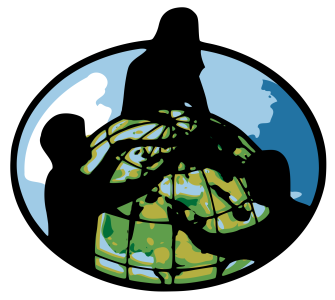Some people describe shame as “red-hot.” They speak to cheeks flaming, blood boiling. Shame is often perpetuated as a heated feeling.
Shame, for me, was always ice-cold.
As a Mexican-Filipina girl, my brown skin sometimes felt like it stuck out like a sore thumb. I knew my last name signified me as “other” and “less-than.” I would hear my ethnic background associated with the word “dirty” and saw the insult lobbed casually at white boys who had gotten too tan at the beach that weekend. Teachers would look up, sometimes shake their head, and ignore them. I would see this and feel my veins turn to ice.
That ice-cold shame sometimes made it difficult for me to focus in class. Was everyone looking at me? Was I really that bad? My affective filter would go up, and my ability to engage in my studies went down.
No student should have to feel that way.
Normally, I try and focus this blog on my students-- what do they need? What are they doing that’s great? How can I be a better teacher?
Recently, though, there’ve been a few articles about “safe spaces” at universities-- some in favor of and some adamantly against. I have written on this blog before about why I think classrooms should feel “safe.” While I am a teacher, I’m no expert in the psychology of university students, nor have I taught higher education. Still, the discussion has brought up a lot of personal feelings for me.
While I haven’t worked in higher education, I was a student in those spaces.When I attended the University of Southern California, I initially shied away from places like “the Latino floor” or “Troy Philippines,” though my parents had been members of both when they attended the university. I felt that, because I hadn’t grown up in those communities, I wouldn’t be welcomed or I wouldn’t fit in.
The thing I quickly realized, though, is that I had always struggled to fit in within my educational setting. That had been hard, but I’d always been able to come home to friends or family that either shared aspects of my culture or created a space where my culture felt equally worthwhile. Yes, that included friends from lots of different backgrounds-- I had and still have plenty of White friends or friends who are neither Latino nor AAPI-- but those relationships had been forged over time, and feeling “safe” was a trust that had to be built.
Students at universities, though, are not just struggling with a new educational setting, many are adapting to an entirely new life-- new living situations, meeting people from different backgrounds, an entirely new way of learning and living.
Plenty of students struggle when they go to college. The issue for students from traditionally oppressed backgrounds-- be that race, class, sexuality, or anything else-- is that there is an additional context to navigate. Many of us learned how to code-switch early on, but we were always able to turn that switch to “off” and relax at home.
Once a student moves to a university, though, the concept of “home” becomes much more muddled. Is home the dorm suite with seven other people, some of whom are actively judging you based on what you were raised to be “normal"-- your food, the way you get ready, the language you speak? Is it in the dorm lobbies where people ask if you only got in because “you were poor” or “you’re an affirmative action student”?
Of course, we all need to learn to live with and interact with other people. That’s part of life. I’m glad for the few years I lived with other people, as it taught me to gain better interpersonal skills. I am also glad that I sat in classrooms where I was intellectually pushed by people with vastly different backgrounds, experiences, and beliefs than my own. I both broadened my own mind and learned to advocate for myself when I felt marginalized. Those were an essential part of my university experience.
That said, it would be a wrong to ignore that fact that most of us are socialized to understand that some cultures have more power than others (hence why many learn to “code switch” to the dominant culture). It would be wrong to ignore that, while we all live differently, some cultures have their looks, traditions, and practices validated by media, by money, by governmental power-- and some do not.
When you come from a background that everything the mass society has told you is “different” or “less than,” and then have to deal with people on the individual level also throwing that in your face, it can be hard to feel “safe” anywhere. While I knew the negative stereotyping I was experiencing was wrong, I also lacked the cultural validation or tools to know how to stand up for myself without immediately being dismissed.
The first time I connected with someone on the Latino floor, it was because I mentioned a comment someone had made about my hair growing up. When I shared it with a few other friends, they had rolled their eyes at me.
Instead, Carolina-- the student who would soon become my best friend-- looked at me and said, “Oh, I know exactly what you mean.”
Kinship, the sense of being seen, understood, and validated, is a powerful tool. While, yes, I can, would, and do often explain things about myself that stem from my identity, it can be tiring. There is something valuable in taking the time to be with other people who have also lived those similar experiences. Someone else who can say, “Oh, I know exactly what you mean,” and actually mean it. It is that feeling of kinship that students who have come from oppressed backgrounds are typically kept from. Instead, they are often told to conform so that they can earn “kinship” with the dominant group.
The students who were congregating in “safe” spaces were not doing so to necessarily exclude others. They were creating a space of kinship to heal from the sense of being “othered” many of us had faced growing up and/or were facing now in the university setting.
When I went to lectures or discussions held by groups I was a part of, feeling “safe” was not because I thought everyone agreed with me. It’s because I knew the people in that group understood the years of hierarchal thinking that had socialized us to believe who we were wasn’t worthwhile. It is because the disagreements we would have would be balanced with the kinship that many of us already felt because of our shared cultural backgrounds.
I don’t think that means everyone in a group immediately gains “kinship.” I also have certainly found kinship with people who grew up in vastly different cultures than my own.
The value of creating these spaces, though, is not simply for these individual relationships that organically occur in all of our lives. It is to combat a society that has attempted to strip kinship away from us by telling us the things that connected us culturally were never worthwhile to begin it.
I don’t advocate for silencing conversations, nor do a believe we should create a place where there is no more free exchange of ideas.
All I know is this: the ability to find “safe” spaces, or rather, spaces of kinship, made me a better person in spaces where I felt very, very different. It gave me the strength to speak up for myself. It also gave me the knowledge to understand why people who made unfair assumptions about me made them. It gave me the tools and compassion to have worthwhile conversations with those people, instead of isolating myself further from them. It gave me a place to call “home” so I could navigate the places that felt consistently foreign.
In the end, I think we all have the right to create those places of comfort, of safety, of kinship, so that we can all enter into discussions of difference feeling open and empowered.





